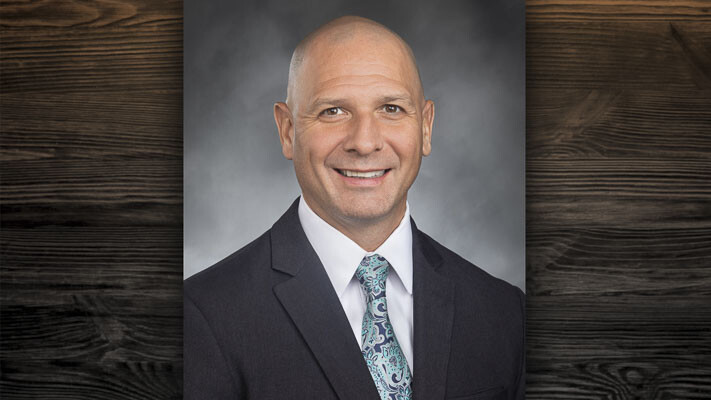
The State Department of Ecology announced Thursday it will seek an agreement to link the state’s cap-and-trade program with the California-Quebec market
Rep. Peter Abbarno, R-Centralia, expressed concerns today about Washington state linking its carbon market to California and Quebec, saying it could mean even higher prices for Washington families.
The Washington State Department of Ecology (DOE) announced today (Thursday) it will seek an agreement to link the state’s cap-and-trade program with the California-Quebec market. Abbarno, who serves on the House Environment and Energy Committee, responded with this statement:
“Washington should not be trying to emulate California. California has the highest gas prices in the nation, with Washington close on their heels. I recently visited California and experienced firsthand their sky-high gasoline prices. That’s what will continue to happen to Washington under this linkage plan.
“California has some of the highest energy prices, the highest housing prices, and some of the most regressive taxes and regulations in the nation. Other states, including Washington, have been the recipient of the mass exodus of California residents moving to escape the disastrous policies of that state. It makes no sense that we would link up with California and replicate their outrageous costs of food, energy, and daily living. This also sends us further down a rabbit hole in which we lose control of our own policies by tying ourselves to other states. Do we really want California dictating policy for Washington state?
“People in my district are already worried about everyday kitchen table issues, such as how they are going to pay their bills, feed their families, and purchase gasoline to get to work. The Department of Ecology wildly understated the cost of these carbon auctions, which are more than three times higher than the DOE predicted. Now this state agency wants us to trust them and their predictions of linking up with the highest-cost state in the nation? This will only cost Washington working families more in the long run.”
Abbarno noted he had predicted higher consumer prices, including increased gasoline prices, after majority Democrats in the Legislature passed the Climate Commitment Act (CCA) in 2021. On April 23, 2021, Abbarno offered an amendment to create a “Taxpayer Fairness Account” to return taxpayer money from passage of the CCA legislation. Unfortunately, the amendment was rejected and gasoline prices rose in January 2023 when the CCA took effect.
Background
Washington’s cap-and-trade program (CCA) puts a price on carbon dioxide emissions by setting a declining annual cap on the emissions of covered businesses (such as utilities, refineries, etc.) and forcing them to buy state-issued allowances at quarterly auctions for any emissions above the cap.
When the CCA was pushed through the Washington State Legislature in 2021 by Democrats, Gov. Jay Inslee and other supporters claimed it would cost only “pennies” for Washington consumers. However, the three quarterly carbon auctions and two Allowance Price Containment Reserve auctions held so far this year, have brought in more than $1.4 billion – about three times more revenue than expected. As a result, Washington gasoline prices rose sharply relative to Oregon, whose gas prices have historically aligned with Washington state. In addition, Washington fuel prices climbed to more than $5 a gallon, and for a short time this summer, surpassed California for the highest gas prices in the nation.
The California-Quebec market, established in 2014, is approximately six times the size of Washington’s total emissions allowance market. DOE officials claim that linking Washington’s program with the California-Quebec market would increase the number of allowances available and result in lower prices for carbon allowances. However, DOE is seeking legislative changes to the CCA in 2024 to align Washington’s emissions reduction policies with California, which is evidence that tying our programs together requires a loss of sovereignty for Washington. DOE’s forecast of 2023 auction market prices were wildly inaccurate, understating compliance costs by 75%, and doubts exist about the accuracy of DOE’s new prediction that linkage to California and Quebec would lower prices.
Information provided by Washington State House Republicans, houserepublicans.wa.gov
Also read:
- Camas girls basketball: Defending champions look to learn from mistakes with a tough scheduleCamas girls basketball faces growing pains as they aim to defend their state championship with a young, talented team.
- Clark County Today Sports Podcast, Dec 19, 2024: Discussing the protocol on voting for WIAA amendments, plus a look at some of the amendments that will be voted on in 2025Clark County Today Sports Podcast reviews Camas and Seton Catholic football, WIAA amendments, and winter sports.
- Biden Energy Dept. deals another blow to natural gas supportersThe Department of Energy’s new rules and a report on LNG exports have sparked debates among natural gas supporters and environmental advocates.
- Opinion: Courts blocking the Kroger-Albertson merger won’t stop consumers from making choicesPaul Guppy of Washington Policy Center critiques judicial rulings that block the Kroger-Albertsons merger, citing changing consumer trends and potential job losses.
- Pac Coast Wrestling to return to Clark County Event Center Dec. 27-28The Pac Coast Wrestling Championships, featuring over 100 teams, return to the Clark County Event Center Dec. 27-28 for two days of thrilling competition.
- Mountain View now runs Clark County’s high school basketball holiday tournamentThe Mountain View Holiday Invite will host eight boys basketball teams, including five from Clark County, from Dec. 26-28 in a showcase of local talent.
- GoFundMe spotlight: Fundraiser for four injured in food truck explosionA fundraiser has been launched to support four individuals injured in the 4 Caminos food truck explosion in Vancouver, Washington.











